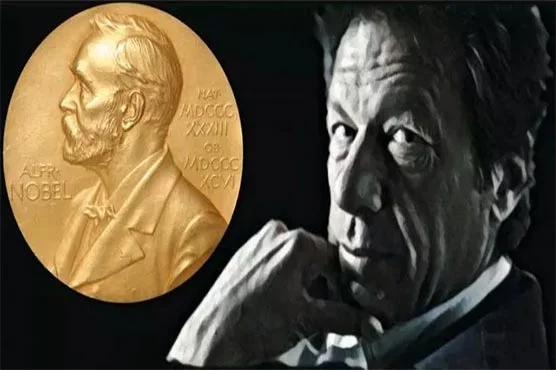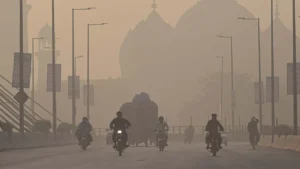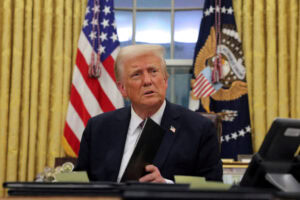Islamabad, Mar 29, 2025: Former Prime Minister of Pakistan, Imran Khan, has reportedly been nominated for the Nobel Peace Prize, recognizing his contributions to human rights and democracy.
The Pakistan World Alliance (PWA), in collaboration with Partiet Sentrum, announced Khan’s nomination, citing his leadership in promoting democratic values and advocating for fundamental rights.
This is not the first time Khan has been considered for this prestigious honor. In 2019, he was previously nominated for his role in fostering peace and stability in South Asia, particularly after defusing tensions between Pakistan and India.
READ MORE:
President Honors Armed Forces Personnel with Military Awards
The Norwegian Nobel Committee follows a rigorous selection process, evaluating nominations over an eight-month period before announcing the winner.
If selected, Imran Khan would join the ranks of global figures recognized for their contributions to peace and justice.
Khan, who served as Pakistan’s Prime Minister from 2018 to 2022, has remained a key figure in the country’s political landscape.
His nomination is expected to spark widespread discussion both within Pakistan and internationally, as his supporters celebrate the recognition of his efforts.
The Nobel Peace Prize winner for 2025 will be officially announced in October, following the committee’s deliberations.
There is no specific Nobel Prize for Human Rights, Peace, or Democracy. However, the Nobel Peace Prize has been awarded to numerous individuals and organizations for their work in human rights, democracy, and peace efforts. Some notable laureates include:
Notable Nobel Peace Prize Winners for Human Rights & Democracy:
Martin Luther King Jr. (1964) – For his leadership in the civil rights movement and nonviolent resistance against racial discrimination.
Amnesty International (1977) – Recognized for its work in defending human rights worldwide.
Mother Teresa (1979) – Honored for her humanitarian work with the poor and suffering.
Lech Wałęsa (1983) – A leader in Poland’s Solidarity movement, promoting democracy and labor rights.
Desmond Tutu (1984) – For his opposition to apartheid in South Africa.
Aung San Suu Kyi (1991) – Awarded for her nonviolent struggle for democracy in Myanmar.
Malala Yousafzai (2014) – Recognized for her advocacy of girls’ education and women’s rights.
Denis Mukwege & Nadia Murad (2018) – For their efforts to end the use of sexual violence as a weapon of war.
Would you like information on a specific award related to human rights and democracy? Many non-Nobel awards also recognize contributions in these areas, such as the Sakharov Prize, the Right Livelihood Award, and the Roosevelt Four Freedoms Award.









